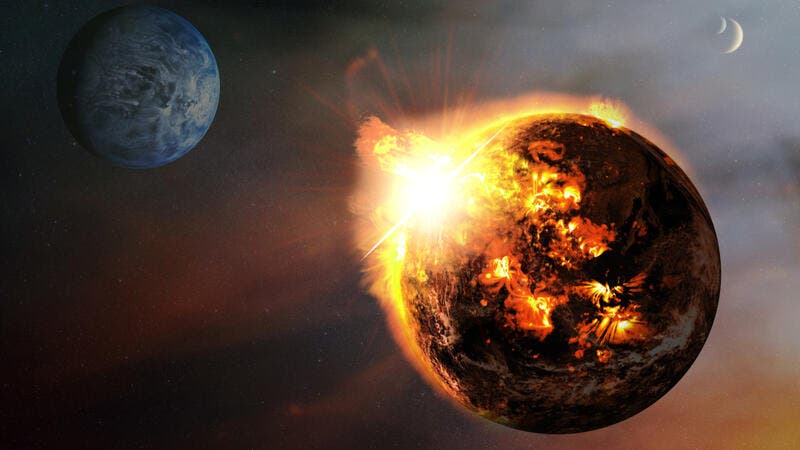The Universe
Scientists Find “Hell Planet” With Lava Oceans, Supersonic Winds, and Rain Made of Rocks
This brutal exoplanet is the most hellish and easily the most extreme ever discovered.

Life here on planet Earth often seems harsh, especially in 2020 with a pandemic, tornados and tropical storms, and out-of-control wildfires. However, none of those problems can hold a candle to the ultraviolent conditions of planet K2-141b.
On this brutal exoplanet hundreds of light-years away, oceans are filled with lava, rocks literally rain down on the surface, and howling winds break the sound barrier at thousands of miles per hour – making the hellish planet easily the most extreme ever discovered.
Such are the infernal conditions depicted in a new study by scientists from McGill University, York University and the Indian Institute of Science Education and Research in Kolkata published on Tuesday in the Monthly Notices of the Royal Astronomical Society.
According to the study, K2-141b is one of the latest “lava planets” discovered, where this world orbits so closely to its sun that it almost grazes the star’s surface as it completes its revolution in only six to seven hours. Mercury, which is the closest planet to the sun in our own solar system, takes about 87 days to orbit the sun.
Meanwhile, the oceans of K2-141b are comprised of pure, heaving lava steams.
The atmospheric conditions and weather cycles of the exoplanet are unlike anything seen in our own solar system. While K2-141b is roughly the size of Earth, its surface, ocean and atmosphere are entirely made of rock –molten or otherwise.
“The study is the first to make predictions about weather conditions on K2-141b that can be detected from hundreds of light years away with next-generation telescopes such as the James Webb Space Telescope,” said lead author Giang Nguyen in a press release.
The scientists found, when analyzing illumination patterns of the planet, that two-thirds of K2-141b never see nightfall and are constantly exposed to daylight – meaning that that side of the planet is always facing its sun.
To call that part of the planet “scalding” hardly does justice to its high temperatures that exceed 5,400 degrees Fahrenheit (3,000 degrees Celsius) – a temperature hot enough to not only melt rocks into lava, but also to vaporize them and create a brutal, unsparing atmosphere.
While the Earth’s water cycle sees water evaporate before it rises up into the atmosphere, condenses, and falls back to the surface as rain, K2-141b only has rocks to work with – hence the constant torrential downpour of stones.
“Our finding likely means that the atmosphere extends a little beyond the shore of the magma ocean, making it easier to spot with space telescopes,” said Nicolas Cowan, a co-author of the study.
Meanwhile, the remainder of the planet never sees light and is constantly experiencing frigid temperatures of minus 392 degrees Fahrenheit, or minus 200 degrees Celsius.
To make matters worse, exoplanet K2-141b has winds that reach 3,100 miles per hour (5,000 km per hour), while its ocean of magma reaches depths of 86 miles (140 km), according to the study’s calculations.
On the dark side of the planet, these horrific winds dominate the environment. On the hot side, however, the winds are completely absent. However, the winds carries the rocky “rain” into the deep magma ocean, which then flows back to the bright side to keep the cycle going.
However, this cycle is nowhere near as stable as our own rain cycle.
“It’s a planet that doesn’t make much sense at all. There’s nothing like it in our solar system,” said Cowan.
The scientists hope that they can gain some insights on the formation of planets like our own that also had brutal conditions in their primeval state.
“All rocky planets, including Earth, started off as molten worlds but then rapidly cooled and solidified. Lava planets give us a rare glimpse at this stage of planetary evolution,” Cowan said.
Typos, corrections and/or news tips? Email us at Contact@TheMindUnleashed.com
